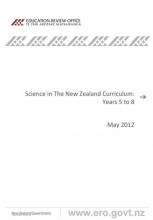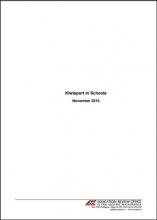Science in The New Zealand Curriculum: Years 5 to 8
In 2011, ERO evaluated the quality of science teaching and learning, its place within the curriculum and its relationship to literacy and numeracy teaching. The evaluation focused on Years 5 to 8 in 100 schools. This report documents the findings of this evaluation.




